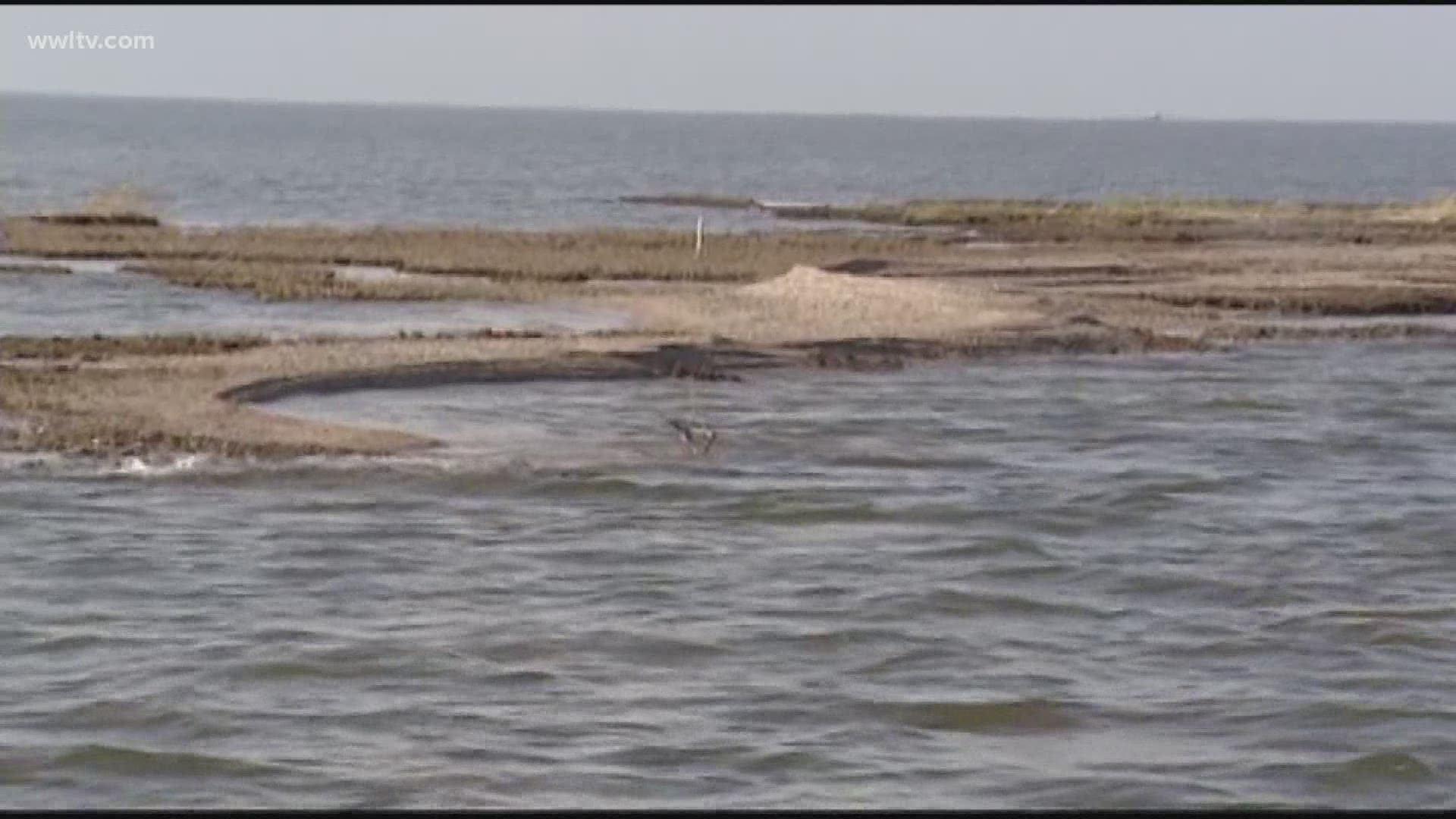LAKE CHARLES, La. — As folks in Southwest Louisiana continue to piece their lives back together, the state’s wetlands are also part of the puzzle.
“They’re very important to us as a buffer to storms. That’s one of the, I think, most important things that those wetlands do,” said wetlands ecologist and professor at Loyola University Bob Thomas.
Thomas says Louisiana’s fragile coastal environment is a problem when hurricanes like Laura hit the state.
“It was a storm that came in and brought us ten to 20 feet of surge and so there was no buffer there for Lake Charles,” said Thomas. “Whereas in the old days those marshes would have been in a lot better condition and they would have absorbed a lot of that water that came in and the brunt of the storm.”
Thomas says for every 2.7 miles of healthy costal marsh; storm surge is dampened by a foot. While generally resilient by nature, Thomas says things like industry and infrastructure over the years keep the wetlands from performing as a sound ecosystem.
“Now it’s much more fragile and so we have to speculate every time we have a major storm like this, did we cross a tipping point,” said Thomas.
Thomas says one tipping point was in 2005.
“If you would have never built the Mississippi Gulf Outlet, when Katrina came in and all that water was pushed across toward New Orleans most of it would have been absorbed and you would have had maybe one or two feet hit those 17 foot high levees but instead it was wide open water and all that water came in and literally topped over some of the levees,” said Thomas
While there’s no scientific data yet on Hurricane Laura’s impact to coastal wetlands, Thomas says the next six to eight months will be a time to see how the wetlands respond. In the meantime, the concern is how humans continue to use those wetlands.
“The more we develop in those wetlands, the more we put in there, the more straight shots for saltwater to move around, the more we destroy the vegetation, the more it’s going to cost humans in the long run,” said Thomas.
More Stories:
► Get breaking news from your neighborhood delivered directly to you by downloading the new FREE WWL-TV News app now in the IOS App Store or Google Play.

